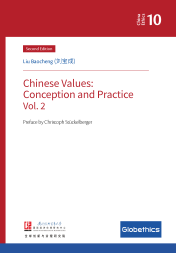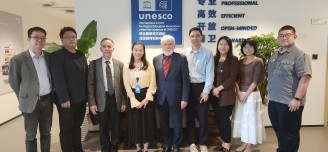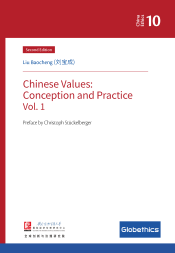Beyond boundaries: Nurturing future ethical leaders
“It is my very first exposure to a Muslim context, and I am grateful for the encounters I have made with my peers in this special location of Indonesia. There is so much to learn…,” shares Tatiana Arango Botero, a young researcher in education from Colombia, currently based in Italy, about her experience at the Globethics Doctoral School. Together with nine other emerging scholars, and five international academic facilitators, she participated in the onsite programme of Globethics’ first iteration of the Doctoral School, accompanied by a group of 21 doctoral students from across the globe joining the event online.
The Universitas Gadjah Mada in Yogyakarta, Indonesia’s oldest and leading higher education institution, hosted the group and supported the programme. From the outset, this engaged partnership, and the support received from Evangelische Mission Weltweit (EMW), set the tone for this doctoral school conducted from 24 September to 5 October 2024 in a spirit of cross-cultural and interdisciplinary academic exchange under the guiding theme of “Inclusive Peace and Responsible Governance.”
Sharpening awareness for economic disparities impeding research careers
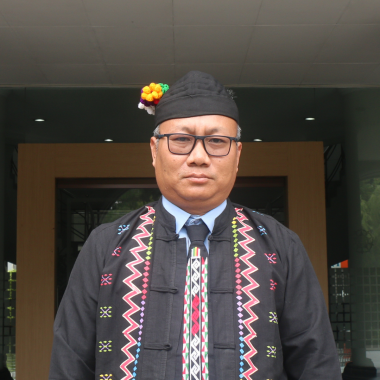
For some participants such as Sein Bawm, a Myanmar doctoral student, the Globethics Doctoral School 2024 journey began with a genuine financial sacrifice. He had to save money from his personal funds to cover his flight ticket, a contribution to the programme requested from all participants. A sacrifice that is indicative of the persisting inequalities of opportunities in higher education and research career advancement, and a poignant reminder that the doctoral school constitutes far more than a subject-driven academic event.
The support offered, especially to young researchers from countries with scarce economic resources, not only enables their participation as individual researchers, but is an essential experience for all. Education and research continue to be areas of exclusive access deserving of collective efforts for knowledge equity. The Globethics Doctoral School has made this dimension visible as an implicit learning experience and as a desideratum for an international research collaboration agenda.
Immersion into a context of multiple diversity
The Globethics Doctoral School was an attempt to combine academic investigation with immersion into a cultural, social and religious context. This immersion happened within and beyond the classroom in a two-directional manner: Participants and facilitators from abroad had the opportunity to immerse themselves into the rich tapestry of Indonesia’s cultures, religions and societal fabric.
As Professor Greta Balliu, economist from the Haute École de Gestion in Fribourg, Switzerland, stated: “I am deeply touched by the warmth of Indonesia’s hospitality, as well as the richness of your cultural diversity. After these two weeks, Indonesia feels as close to my heart as Albania, Italy, and Switzerland.”
The excursions to cultural religious heritage sites such as the UNESCO-listed Borobudur temple, the cultural evening with the traditional Javanese ballet against the lit scenery of the Prambanan temple, and the visits to museums displaying Javanese history and traditions against the backdrop of colonial and inter-ethnic encounters symbolised in a very tangible way what it means to acknowledge the land and the people in all their diversity. Climbing Borobudur, the world’s largest Buddhist temple, allowed the group to physically experience the site as a place of worship but also as a repository of an ancient and complex history of religious diversity in this region.
The young Indonesian researchers expressed time and again that the international composition of the group also allowed them to reflect on their own, and seemingly familiar context afresh. Exposing one another to questions guided by intellectual curiosity was for the participants decisive: ‘We want to listen, understand and learn from one another. It helps us to deepen our own research’ was a recurrent articulation. For Édouard Ntakirutimana from Rwanda, who conducts research on peace education curricula in primary schools in his country, his first visit to an Asian country was an eye-opening and transformative experience.
What’s peace all about? Bridging research and real-life experiences
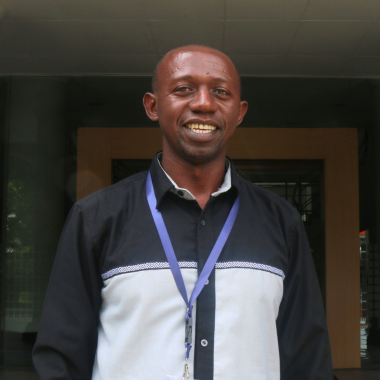
Édouard pursues to state: “The deep reflection with my peers and the learning on culture and environment was impressive. Indonesians’ efforts in preserving their diverse cultural traditions left an indelible mark on me.” For him, this constitutes one important element of building peace: ensuring that places of remembering the past and imagining the future across the generations are kept alive. Coming from a context in which the collective memory has been a painful task in the sight of unimaginable atrocities between ethnic groups, this has been a significant insight.
During the research engagement day, participants experienced how peace is a real-life issue that deserves to be cultivated and studied. The researchers of the Pancasilla Centre of the Universitas Gadjah Mada explained the guiding motif of ‘unity in diversity’ in Indonesian nation-building. They shared that it requires a continuous public debate and normative consensus-building on what this means from the viewpoint of different religious and ethnic communities. The role of gender in peacebuilding came to the fore in the encounter with women faculty and leadership of the Islamic University in Yogyakarta.
One of the most profound learning experiences was offered to the participants by visiting the Kali Code community who live alongside the Code River in Yogyakarta. “When we heal our world, we heal ourselves,” they could read on one of the signposts in this neighbourhood; an example of people’s agency to empower themselves in preserving their environment. An urban garden maintained by an intergenerational group of women, waste recycling, and disaster prevention illustrate the community’s dedication to preserving their environment as a way to uphold their humanity.
The encounter with this community allowed participants to discover the transformative potential of their own research. Many resonated with Greta Balliu’s sentiments: “We now share a common mission: to reflect on peace and freedom. Our freedom is tied to the freedom of others. My peace depends on the peace in Myanmar, in Palestine, and every place where the lives and communities of people are at risk.”
Young researchers sharing knowledge and shaping the future of the world
The Globethics Doctoral School 2024 offered keynote lectures, panels, and methodological workshops around four thematic tracks with foci on pluralism and diversity, sustainable development and responsible governance, democracy and civic participation, and peacebuilding and conflict resolution. At the heart of the doctoral school experience, however, was a series of small study group sessions in which the participants shared their research projects on selected topics resonating with the doctoral school’s general theme and sometimes in close proximity with their own doctoral projects.
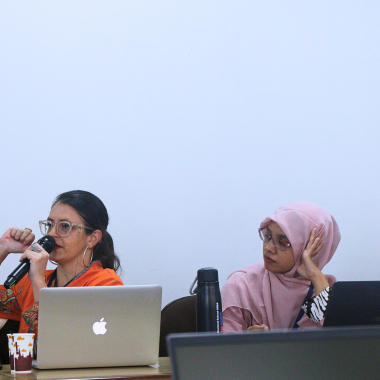
It is in these study groups that the vibrancy of the doctoral school became tangible. Lively discussions on how to formulate adequate research questions, identify propitious methodologies that assist in capturing complex empirical situations, and periods of deep reflection and listening – to the analysis of community-based education contributing to conscientisation and democratisation in Myanmar, for example, or the study of rising interreligious conflicts in the urban setting of Yogyakarta.
The online participants in the doctoral school were offered the opportunity to attend the opening panel via livestream, to view the recordings of plenary lectures and panels, and were engaged in five live sessions with distinguished international faculty members. Among these were inter alia Mohammed Abu-Nimer from the American University in Washington DC, who contributed with his lecture on the role of religion in peace and conflict against the background of the Israeli-Palestinian conflict; Daniela Gallego of the Tecnológico de Monterrey in Mexico on deliberative democracy, and Seidu Alidu of the University of Ghana on democracy and civic participation.
The participants will conclude their engagement with one another by the end of November through the Globethics online platform, where the discussion forums provide space for further reflections and exchanges. A selection of final assignment papers will be published in the upcoming issue of the Journal of Ethics in Higher Education. Another example showcasing that the doctoral school 2024 is not only a programme for doctoral students but a programme of young researchers.
A doctoral school perceived by all who participated in it not just as an academic pursuit but as a holistic journey equipping all to think critically, to innovate and to share knowledge with the persistent hope that these human and intellectual postures of investigating essential problems of our world, such as peace and responsible governance, will contribute to shaping the future. Globethics looks forward to building on the lessons of this first doctoral school to perpetuate and expand this programme.
